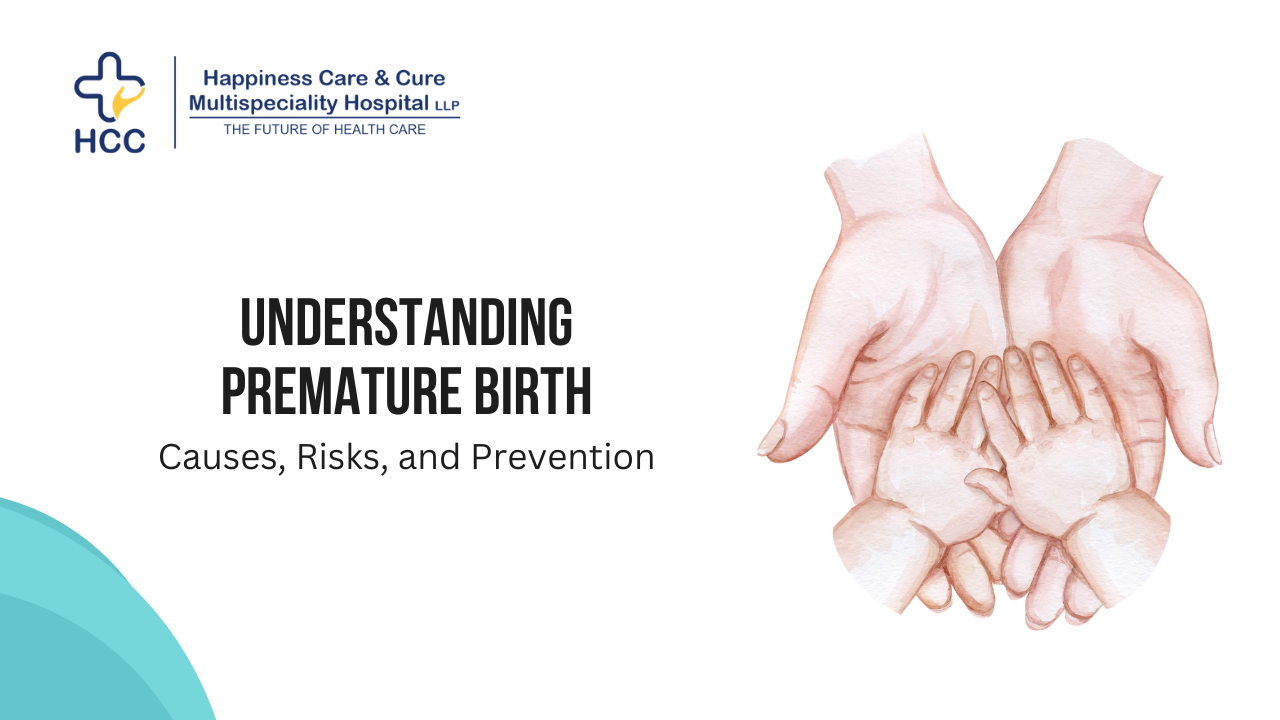
Introduction
Premature birth, defined as birth before 37 weeks of gestation, remains a concerning global issue in maternal and child health. Its prevalence and associated complications necessitate a comprehensive understanding of its causes, risks, and preventive measures.
Causes of Premature Birth
Numerous factors contribute to premature birth, encompassing both maternal and fetal elements. Maternal health significantly influences gestation duration. Conditions like hypertension, diabetes, infections, and lifestyle choices such as smoking or substance abuse heighten the risk of preterm labor. Fetal conditions, such as multiple gestations, genetic predispositions, or birth defects, also contribute.
Risks Associated with Premature Birth
The implications of premature birth extend beyond the immediate delivery. Neonatal complications are prevalent, ranging from respiratory distress syndrome to neurological complications like cerebral palsy. Additionally, premature infants often face developmental challenges, including cognitive or behavioral issues that may persist into childhood.
Prevention Strategies
While not all instances of premature birth can be prevented, several measures can mitigate the risk. Adequate prenatal care stands as a cornerstone in identifying and managing risk factors. Education on healthy lifestyle choices, including proper nutrition and avoiding harmful substances, plays a pivotal role. Additionally, interventions like progesterone treatments for high-risk pregnancies have shown promising results in reducing preterm birth rates.
Medical Advancements and Research
The medical community continually strives to advance understanding and treatment of premature birth. Ongoing research explores innovative techniques and therapies to prevent preterm labor, improve neonatal outcomes, and enhance long-term developmental prospects for preterm infants.
Support Systems for Preterm Birth
Recognizing the complex emotional and financial challenges faced by families of premature infants, support networks and specialized care facilities are crucial. Access to multidisciplinary healthcare teams, neonatal intensive care units (NICUs), and community support groups can profoundly impact the journey of families navigating premature birth.
Conclusion
Understanding the complexities surrounding premature birth—its causes, associated risks, preventive strategies, and ongoing research—is crucial in addressing this global health concern. By prioritizing education, research, and support systems, we can collectively strive to minimize the incidence of premature birth and improve outcomes for both mothers and infants.
FAQs
Q1: Is premature birth preventable? A1: While not entirely preventable, steps like proper prenatal care, healthy lifestyle choices, and medical interventions can help reduce the risk.
Q2: What complications can arise from premature birth? A2: Premature birth can lead to various complications, including respiratory issues, neurological problems, and long-term developmental challenges.
Q3: Are there any specific risk factors for premature birth? A3: Yes, risk factors include maternal health conditions like hypertension and diabetes, as well as fetal factors such as multiple gestations or birth defects.
Q4: How does prenatal care impact premature birth risk? A4: Adequate prenatal care helps identify and manage risk factors, potentially reducing the likelihood of premature birth.
Q5: What role does lifestyle play in preventing premature birth? A5: Healthy lifestyle choices such as proper nutrition and avoiding harmful substances significantly contribute to lowering the risk of premature birth.
Q6: Can medical interventions help prevent preterm labor? A6: Yes, interventions like progesterone treatments for high-risk pregnancies have shown effectiveness in reducing preterm birth rates.
Q7: What advancements are being made in premature birth research? A7: Ongoing research focuses on innovative techniques and therapies to prevent preterm labor and improve outcomes for premature infants.
Q8: How do support systems aid families dealing with premature birth? A8: Support networks, specialized care facilities, and access to healthcare teams and community groups provide crucial assistance to families of premature infants.
Make an Appoinment